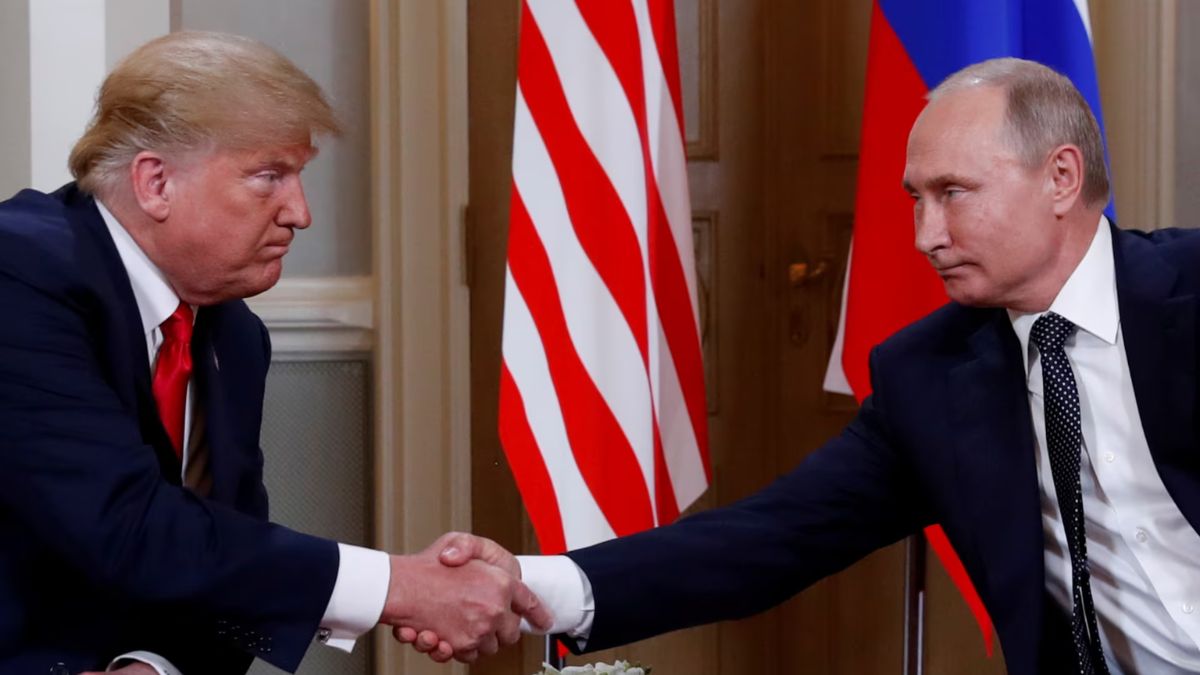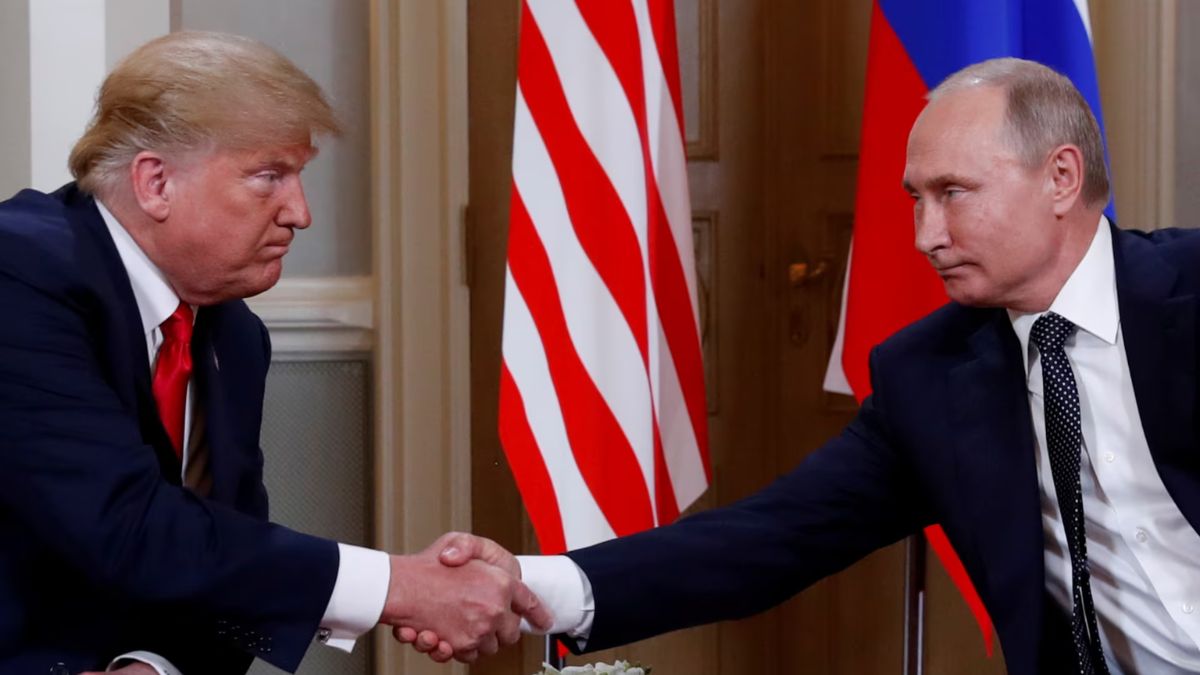As three eastern German states — Brandenburg, Saxony, and Thuringia — prepare for regional elections this month, the stakes extend far beyond Germany’s borders. Russia, under the leadership of Vladimir Putin, is closely watching these elections, which have the potential to significantly alter Germany’s political landscape.
With Russia-friendly parties like the Alternative for Germany (AfD) and the newly formed Sahra Wagenknecht Alliance (BSW) poised to make substantial gains, Moscow sees an opportunity to regain influence in a region it once dominated during the Cold War.
The upcoming elections could symbolise a strategic victory for Putin, who has a deep personal and historical connection to Germany, particularly its eastern regions.
Why will Russia be watching these elections?
Vladimir Putin’s fascination with Germany is rooted in his past. During the 1980s, Putin served as a KGB officer in Dresden, East Germany, where he was deeply involved in intelligence operations against the West. His time in Dresden left a lasting impression on him, shaping his worldview and his enduring interest in German affairs, reported Politico.
Putin’s biographer once described him as “the German in the Kremlin.”
For Putin, the upcoming elections in Brandenburg, Saxony, and Thuringia hold not just political, but also personal significance. The possibility of pro-Russian parties securing major victories in these regions would represent a symbolic return to influence for Moscow in areas that were once part of its sphere of control.
Impact Shorts
View AllDuring the Cold War, East Germany was under Soviet influence, and many in the region still harbor skepticism toward the West, a sentiment that Russia has been adept at exploiting.
Are the contesting parties pro-Russian?
The AfD, in particular, has openly expressed admiration for Putin’s leadership style and has advocated for policies that align closely with Russian interests. This includes opposition to NATO, skepticism toward the European Union, and calls for the normalisation of relations with Russia.
The AfD’s platform resonates strongly in eastern Germany, where economic frustrations and historical ties to Russia have created fertile ground for pro-Moscow narratives. According to the latest polls, the AfD is expected to finish first in all three states, with a particularly strong showing in Thuringia, where it could capture as much as 30 per cent of the vote.
The AfD has consistently opposed Germany’s support for Ukraine and has called for an end to sanctions against Russia. The party’s leadership has made no secret of its admiration for Putin’s authoritarian style. Björn Höcke, the AfD leader in Thuringia, has even stated that if he ever became German chancellor, his first trip would be to Moscow, reported Politico.
The newly formed BSW, led by Sahra Wagenknecht, also shares a sympathetic view towards Russia, particularly in its calls for a peaceful resolution to the conflict in Ukraine that includes diplomatic engagement with Moscow.
Wagenknecht has been critical of the West’s approach to the Ukraine war, echoing Russian talking points that NATO shares the blame for the conflict. “We need a European peace order that includes Russia,” Wagenknecht has stated, reflecting a viewpoint that aligns with Moscow’s interests.
What is Putin’s influence in Germany?
Putin’s influence in Germany extends beyond political parties. His ties to Germany have been a recurring theme throughout his presidency. Before relations between Russia and Germany soured over the Ukraine conflict,
Putin was a frequent visitor to Germany, including to his former hometown of Dresden. During a visit in 2009 to receive the Order of St. George, Putin remarked, “I’ll be honest, I come to Dresden with a special feeling. This is without question one of the centers of European culture, a city rich in history with its own special charm.”
The Russian leader’s influence is not just historical but strategic. By fostering relationships with political figures and parties in Germany, Putin has sought to weaken European unity, particularly in its stance against Russia.
What is the strategic importance of eastern Germany?
Eastern Germany holds a unique place in the geopolitical landscape. Its history as part of the Soviet bloc has left a lasting legacy, with many in the region still viewing Moscow with less suspicion than their western counterparts.
This sentiment has been nurtured by decades of Soviet and, later, Russian propaganda, which portrayed the West as an imperialist force and Russia as a protector of Eastern European interests.
This historical context is crucial to understanding why the upcoming elections are so important to Russia. The AfD and BSW’s platforms resonate with a significant portion of the eastern German electorate, particularly their calls for closer ties with Russia and their opposition to Western policies, including sanctions on Moscow and military support for Ukraine.
The success of these parties could lead to a shift in Germany’s foreign policy, particularly if they gain enough influence to form coalitions or at least block key legislative actions.
What impact can an AFD and BSW win in Germany have on Europe?
The potential success of pro-Russian parties in these elections could have profound implications for Germany and Europe. A strong showing by the AfD and BSW could embolden other populist and eurosceptic movements across the continent, further complicating the European Union’s efforts to present a united front against Russian aggression.
It could also lead to increased tensions within NATO, particularly if Germany, one of its most powerful members, begins to shift its stance on Russia.
For Putin, the elections in Brandenburg, Saxony, and Thuringia represent an opportunity to reassert Russia’s influence in Europe, particularly in a region where historical ties to Moscow remain strong. The outcome of these elections could mark a significant turning point in Germany’s political trajectory, with potential consequences that extend far beyond its borders.
Also Watch:
With inputs from agencies


)
)
)
)
)
)
)
)
)



